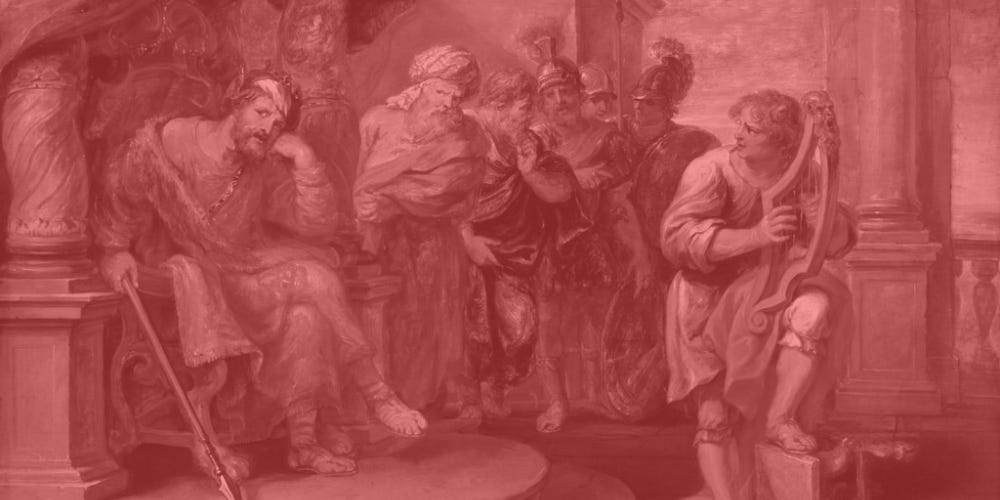I’ve really enjoyed examining the role the Philistines played in the Old Testament. We’ve all heard the story of David and Goliath many times—it's a favorite for a reason. But today, I want to focus on what we can learn from what happened immediately afterward.
“As soon as David returned from striking down the Philistine, Abner took him and brought him before Saul with the head of the Philistine in his hand. Saul said to him, ‘Whose son are you, young man?’ And David answered, ‘I am the son of your servant Jesse the Bethlehemite.’ As soon as David had finished speaking to Saul, the soul of Jonathan was knit to the soul of David, and Jonathan loved him as his own soul.” (1 Samuel 17:57–18:1)
The Bible doesn’t say exactly why Jonathan chose to become David’s friend in that moment, but I believe it was partly because Jonathan was living out the command Paul wrote to the Philippians:
“Finally, brothers, whatever is true, whatever is honorable, whatever is just, whatever is pure, whatever is lovely, whatever is commendable—if there is any excellence, if there is anything worthy of praise—think about these things.” (Philippians 4:8)
David stepped up and did what any man of God should have done, but what others refused to do on that battlefield. Jonathan honored David’s faith for the rest of his life. Saul, on the other hand, also saw something in David. He recognized a talented young man who could be an asset to his kingdom.
“David went out and was successful wherever Saul sent him, so that Saul set him over the men of war. And this was good in the sight of all the people and also in the sight of Saul’s servants.” (1 Samuel 18:5)
At first glance, the actions of Saul and Jonathan might not seem very different. In fact, Saul appeared to be even more generous than his son. After all, Saul gave David a prestigious job and a place at the king’s table. Everything seemed to be going right for David—until the fame of his success began to spread.
“Saul was very angry, and this saying displeased him. He said, ‘They have ascribed to David ten thousands, and to me they have ascribed thousands. What more can he have but the kingdom?’ And Saul eyed David from that day on.” (1 Samuel 18:8–9)
In The 7 Resolutions, Karl writes, “Fools bring you down, and friends call you forward. The need to distinguish between them is the difference between life and death” (110). If God had not intervened, Saul would have foolishly killed his most valuable servant out of jealousy.
Of course, we would all rather be friends with Jonathan, but how often do we fall into the temptation of being a friend like Saul? Jealous of the accomplishments of others? Suspicious of their motives? Lashing out because of our own insecurities?
Choosing friends doesn’t just mean cutting fools out of our lives—it also means cutting the foolishness out of our own lives. If you take a moment to think about the friends in your life, are you calling them forward like Jonathan, or are you bringing them down like Saul?
Shawn




